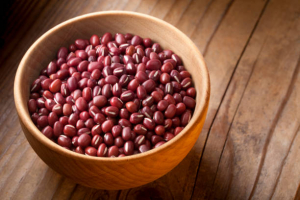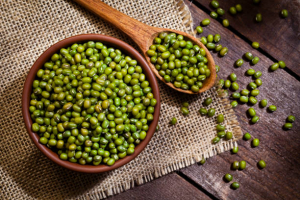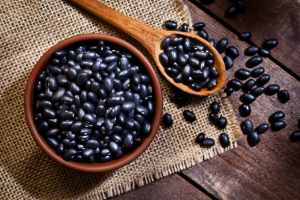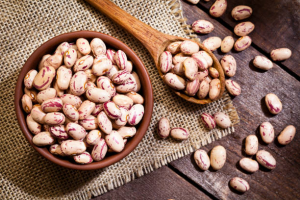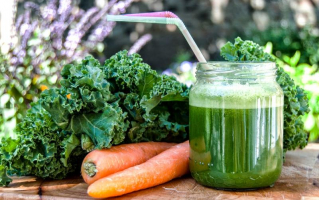Top 9 Health Benefits of Fava Beans
Green legumes that come in pods are fava beans, often known as broad beans. People from all over the world enjoy them because of their somewhat sweet and ... read more...earthy flavor. Fava beans are rich in protein, fiber, vitamins, and minerals. They are believed to provide remarkable health benefits, including enhanced immunity and motor function. Here are the best fava bean health advantages, all supported by research.
-
Fava beans are incredibly nutrient-dense for their comparatively tiny size. They are very abundant in plant protein, folate, and a number of other vitamins and minerals. They include a lot of soluble fiber, which can help with digestion and decrease cholesterol. One cup (170 grams) of cooked fava beans has:
- Calories: 187 calories
- Carbs: 33 grams
- Fat: Less than 1 gram
- Protein: 13 grams
- Fiber: 9 grams
- Folate: 40% of the Daily Value (DV)
- Manganese: 36% of the DV
- Copper: 22% of the DV
- Phosphorous: 21% of the DV
- Magnesium: 18% of the DV
- Iron: 14% of the DV
- Potassium: 13% of the DV
- Thiamine (vitamin B1) and Zinc: 11% of the DV
In addition, fava beans provide smaller amounts of almost all other B vitamins, calcium, and selenium.
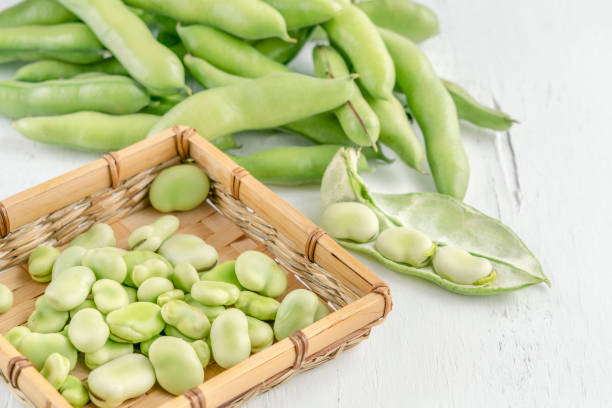
Loaded With Nutrients 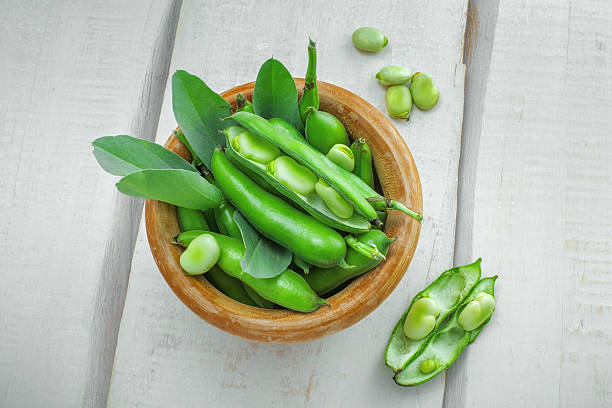
Loaded With Nutrients -
Levodopa (L-dopa), a substance that your body transforms into the neurotransmitter dopamine, is abundant in fava beans. Parkinson's disease results in the loss of brain cells that make dopamine, which causes tremors, problems with motor function, and trouble walking. The majority of the time, L-dopa-containing medicines are used to treat these symptoms. As a result, although there is little evidence, eating fava beans may aid with Parkinson's disease symptoms. After 12 hours without taking any medicine, consuming 1.5 cups (250 grams) of fava beans had a similar favorable impact on blood dopamine levels and motor performance as L-dopa medications, according to a small trial including 11 persons with Parkinson's disease.
Another research on six Parkinson's disease-afflicted people found that combining the anti-medicine Parkinson's carbidopa with 100–200 grams, or 1–1.75 cups, of fava beans reduced symptoms just as effectively as more conventional treatment regimens. Even though these findings are encouraging, additional study is required. Fava beans contain a lot of L-dopa, but it's important to remember that they shouldn't replace prescription drugs.
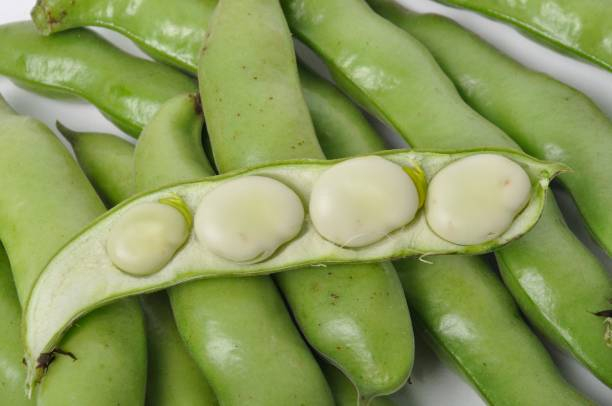
May Help With Parkinson’s Disease Symptoms 
May Help With Parkinson’s Disease Symptoms -
Folate, a vitamin that supports good embryonic development, is abundant in fava beans. The development of cells and organs depends on folate. In order to lower the chance of neural tube abnormalities, or problems with the brain and spinal cord development of her unborn child, a pregnant woman requires increased folate from meals and supplements. In fact, it is predicted that over 260,000 babies born globally in 2015 have neural tube abnormalities, many of which would have been avoidable with proper maternal folate consumption.
According to research involving more than 23,000 women, newborns of moms who consumed the most dietary folate per day compared to those whose consumption was the lowest saw a 77% reduced incidence of brain and spinal cord problems. Fava beans are a fantastic option for pregnant women since one cup (or 170 grams) contains 40% of the DV for folate.
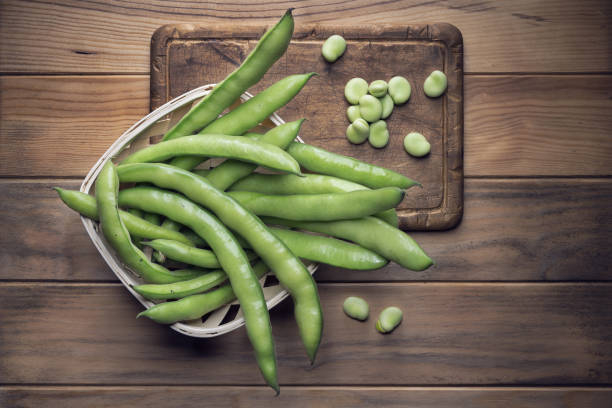
May Help Prevent Birth Defects 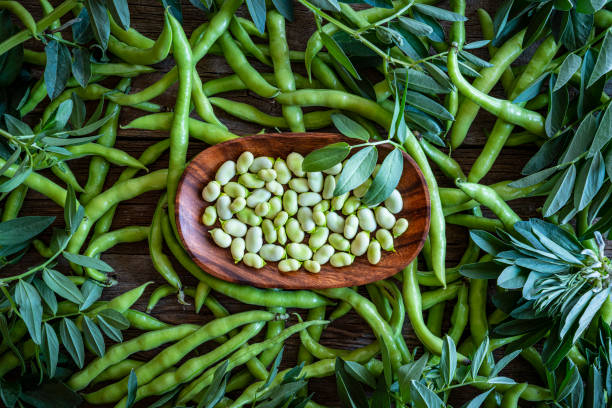
May Help Prevent Birth Defects -
Consuming fava beans frequently might strengthen your immune system. They are particularly abundant in substances that might boost antioxidant activity. Because they combat the free radicals that may cause cell damage and illness, antioxidants are essential to your body's immunological response. In a test-tube investigation, it was shown that fava bean extracts boosted the antioxidant activity of human lung cells by up to 62.5%.
Fava beans also include substances that have been demonstrated to improve the capacity of the potent antioxidant glutathione in human cells and postpone cellular aging. These investigations, however, used isolated cells that had been exposed to fava bean extracts. It is unknown if fava beans consumed as part of a normal diet have the same immune-stimulating effects on individuals.
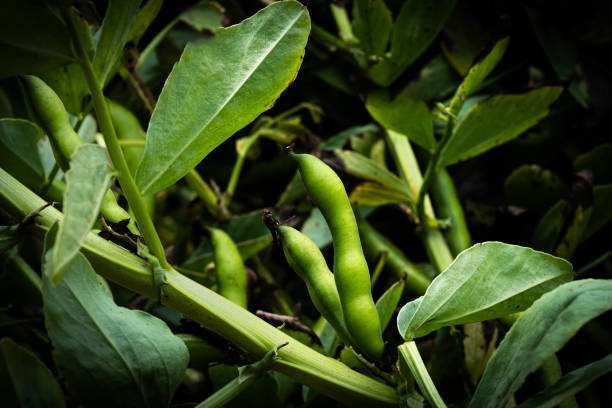
Contain Immune-Boosting Nutrients 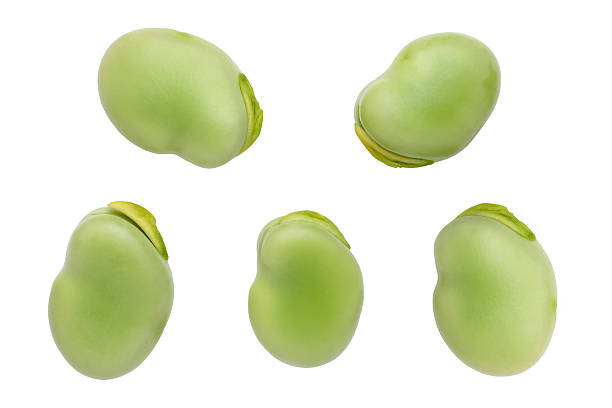
Contain Immune-Boosting Nutrients -
Copper and manganese, are two elements that are abundant in fava beans and may help stop bone loss. Although it is unclear exactly how they affect bone health, rat studies indicate that manganese and copper deficiency may cause less bone growth and more calcium excretion. Manganese and copper, according to a human study, are essential for strong bones.
In a 12-month trial of postmenopausal women with weak bones, it was discovered that taking a supplement including calcium, vitamin D, manganese, and copper increased bone mass. Additional studies have revealed that calcium, zinc, and the minerals copper and manganese may work together to stop bone loss in healthy older women.
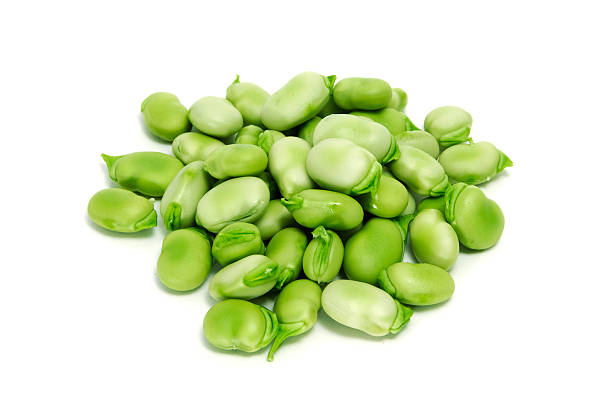
Beneficial for Bone Health 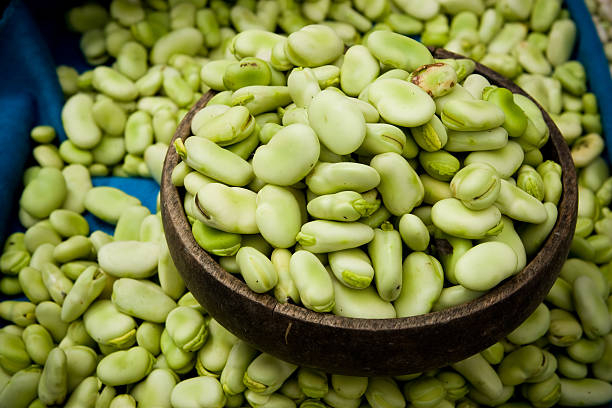
Beneficial for Bone Health -
Consuming fava beans, which are high in iron, may alleviate anemia symptoms. Hemoglobin, a protein that enables your red blood cells to transport oxygen throughout your body, is produced from iron. Anemia, which is characterized by exhaustion, weakness, lightheadedness, and shortness of breath, can result from an iron shortage. In one research of 200 young women, those who reported a diet low in iron were six times more likely to suffer anemia than those who claimed a diet high in iron.
Consuming fava beans and other iron-rich plant foods often may raise blood iron levels and lessen the effects of anemia. Fava beans, however, have a kind of iron that is better absorbed when combined with vitamin C from foods like bell peppers or citrus fruits. Additionally, fava beans should not be consumed by those who have the hereditary condition glucose-6-phosphate dehydrogenase deficiency since doing so may result in hemolytic anemia, a separate sort of blood problem.
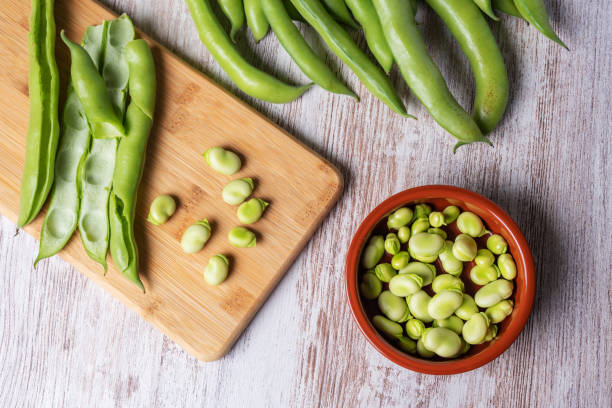
May Help With Symptoms of Anemia 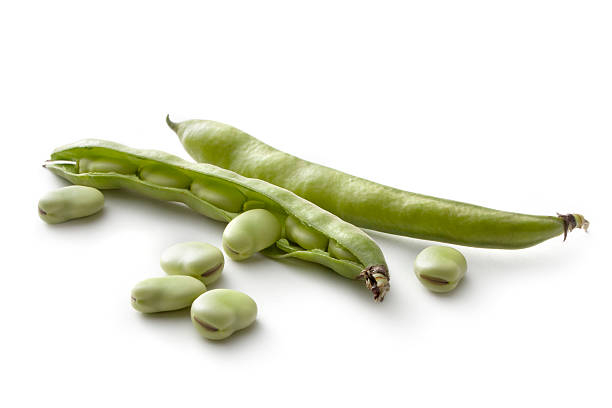
May Help With Symptoms of Anemia -
Nutrient-rich fava beans can help to promote heart health. They include magnesium and potassium in particular, which may relax blood arteries and lower blood pressure. The Dietary Approaches to Stop Hypertension (DASH) Diet, an eating regimen that suggests meals high in potassium and magnesium, has been proven in several trials to effectively lower high blood pressure.
Additionally, 10-year research including 28,349 women discovered that those who consumed the most magnesium through their diets had lower rates of high blood pressure than those who consumed the least of this mineral. According to this study, consuming fava beans and other foods high in potassium and magnesium may decrease blood pressure and enhance heart health.
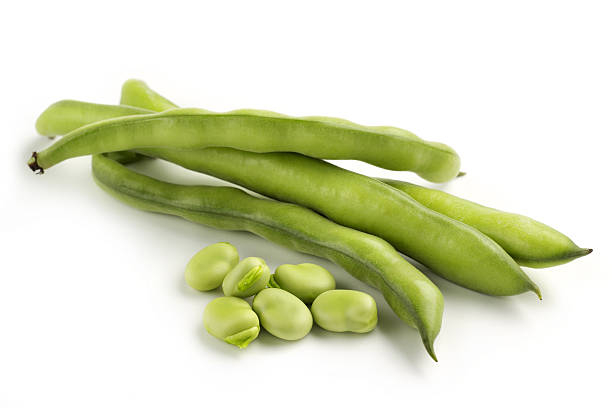
May Improve High Blood Pressure 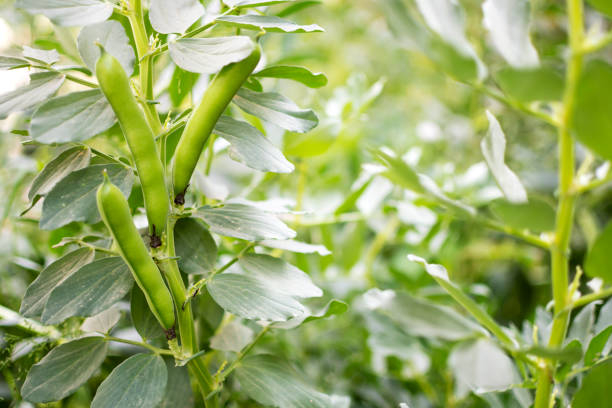
May Improve High Blood Pressure -
Your waistline may benefit from fava beans. Fava beans include 187 calories per one-cup (170-gram) serving, 13 grams of protein, and 9 grams of fiber. One small study in 19 adults found that a diet with 30% of calories from protein increased feelings of fullness and decreased daily calorie intake by an average of 441 calories, compared to a diet with the same number of calories but only 15% from protein. A diet high in protein and fiber may improve feelings of fullness, which may lead to a lower calorie intake and weight loss.
Those who had a high-fiber diet with more than 15 grams of fiber per 1,000 calories shed more weight (nearly five pounds, or 2.4 kg) than those who consumed a diet with less fiber throughout the course of four-year research including 522 participants. So, including fava beans, which are high in protein and fiber, in your diet may help you lose weight.
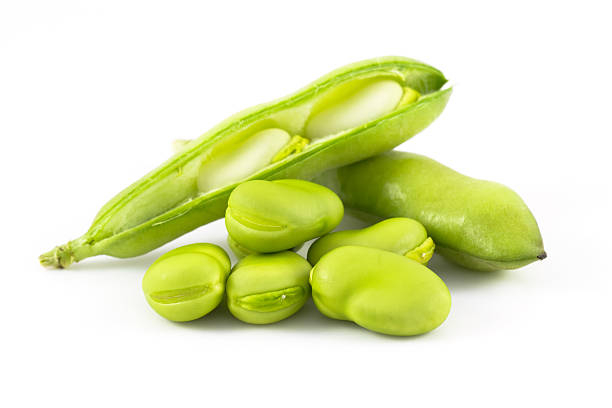
May Aid Weight Loss 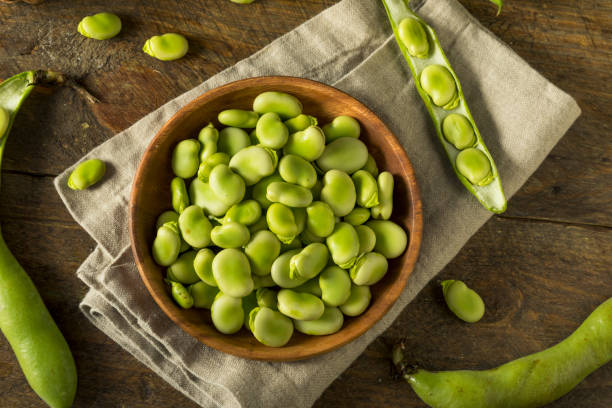
May Aid Weight Loss -
The majority of the soluble fiber found in fava beans may help reduce cholesterol levels. By absorbing water in your stomach, producing a gel-like material, and softening your stool, soluble fiber may help you have regular, healthy bowel movements. It can also attach to and eliminate cholesterol from your body. In fact, soluble fiber may help decrease blood cholesterol levels in both healthy people and those with high levels, according to a number of studies.
In a three-month trial including 53 healthy people, those who consumed two more grams of soluble fiber daily had a 12.8% reduction in "bad" LDL cholesterol, whereas those who consumed less fiber saw no appreciable changes in their LDL levels. Additionally, an analysis of 10 research examining the impact of fiber-rich legumes on cholesterol levels discovered that including these foods in one's diet was linked to only moderate drops in both total and "bad" LDL cholesterol levels. Including fava beans in your diet may be helpful if you're seeking to lower your cholesterol.
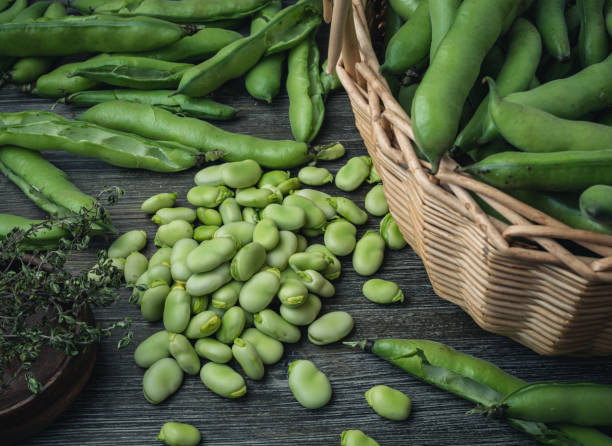
May Help Lower Cholesterol 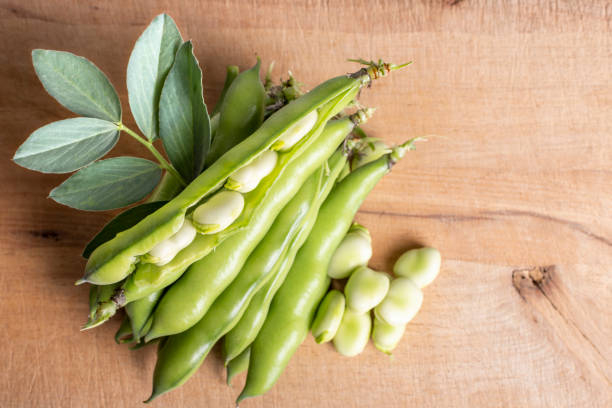
May Help Lower Cholesterol











